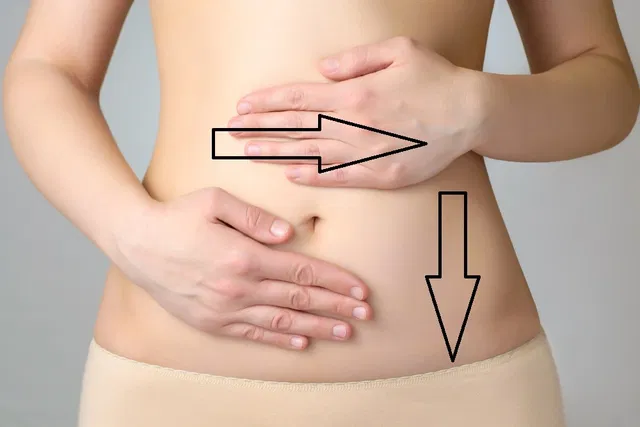There are many ways you can eliminate trapped intestinal gas. Some simple methods you can try are drinking fennel tea with lemongrass and walking for several minutes, as both of these stimulate intestinal movement, which will help to eliminate gas.
In cases where it is not possible to get rid of gas by just drinking tea, you can try massaging the abdomen to help move along any accumulated gas. Sometimes trapped gas can cause sharp pain, which can even be confounded with a heart attack.
Some excellent ways to get rid of trapped gas are:
1. Palpating the abdomen

To get rid of gas trapped in the intestines quickly, you can try contracting the abdomen. Lay on your back and bend your knees up to your chest. Wrap your arms around your knees and press them into your chest contract your abdomen. This is also a good way to eliminate gas in babies and children, as this exercise poses no risks to health.
2. Drinking a laxative smoothie
Drinking a smoothie with papaya juice, natural yogurt, plums and oats in the morning is a good way to start the day and relieve constipation. All you need to do is add these ingredients to a blender, mix well, and drink, without any added sweeteners necessary.
Orange juice is also a good option to drink throughout the day. You can opt to just eat fruit for the day to stimulate intestinal movement, however you should not do this for more than a day as this is a very restrictive diet.
Also recommended: 12 Natural Laxatives: What to Eat to Get Rid of Constipation Fast tuasaude.com/en/natural-laxatives3. Performing an abdominal massage

Another very efficient alternative is to massage the abdomen. Massage should be soft and circular, working from the top of the abdomen to the bottom. This aids with pushing the gas out of the body.
4. Applying heat
If you experience discomfort from gas, it may be useful to apply heat, such as a heating pad or a hot water bottle, which should be placed on the abdominal region.
In addition to helping to eliminate pain, the heat relaxes the intestinal muscles, helping to eliminate gas naturally.
5. Drinking gas-eliminating teas
Taking lemongrass tea with fennel throughout the day is a good option, as this tea contains anti-spasmodic properties. This means the tea will not only help with getting rid of gas, but also reduce any sharp pains felt in the belly. The tea can also serve to hydrate the bowels, which will help to loosen up the intestines so that gas can pass. Ginger tea is another good option. See our article about different tea recipes you can try to treat excess gas.
6. Walking after eating
Walking after eating can help to improve digestion and to relax the intestines. This can help to promote the natural elimination of gases.
Other exercises that can be done are stretching on a mat or some yoga poses.
Also recommended: Gas Pain: Symptoms, Diagnosis, Causes, & Treatment tuasaude.com/en/gas-symptoms7. Over-the-counter medication
Another way to get rid of gas is to use over-the-counter medication from pharmacy. Some options include simethicone, activated charcoal or Gas-X. Each of these should be taken as indicated on the product label or as directed by the pharmacist.
If you continue to experience gas even after trying the above methods and if you also have constipation, you can also try performing an enema at home to eliminate both the trapped gas and stool. Enemas can be purchased at the pharmacy, and should some with a bottle of laxative liquid. This liquid is introduced into the anus and should result in a bowel movement within minutes. This will help to relieve symptoms quickly and efficiently.
8. Performing an enema
If your gas persist after trying the these tips, and you additionally have constipation, you can perform an enema to help eliminate both gas and feces.
To do this, you can use just a suppository or a small glycerin enema, which are inserted in the anus and held to help trigger the elimination of feces. These help to clean-out the intestines and elimante trapped gas.
